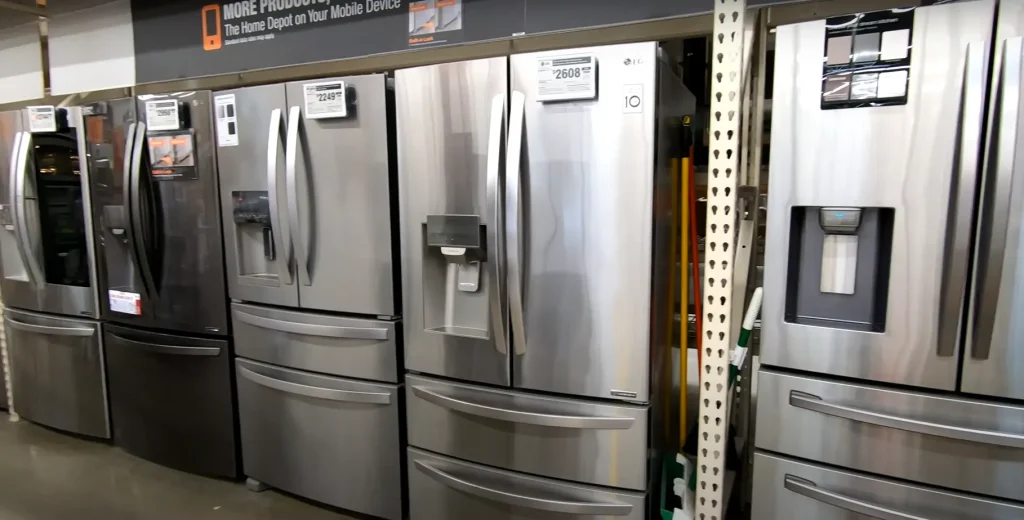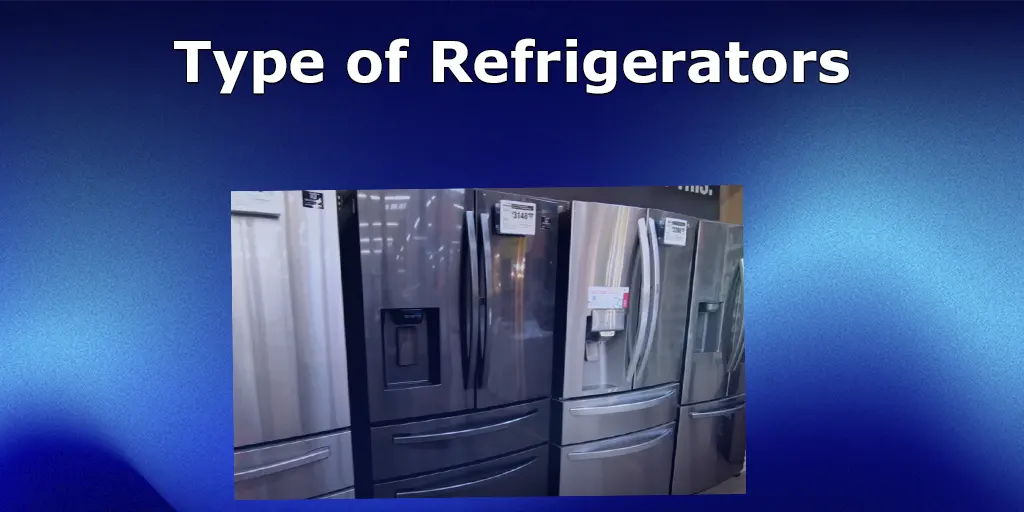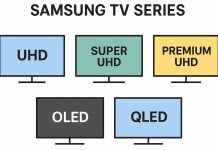The decision to purchase a new refrigerator is influenced by a range of important factors, both practical and personal. Over time, older refrigerators tend to lose efficiency, leading to increased energy consumption and higher utility bills. This decline is often caused by worn-out sealing gaskets, gradual refrigerant leaks, and the natural degradation of materials such as plastic. In many cases, frequent breakdowns or malfunctions also become more common, making continual repairs both inconvenient and economically unjustifiable. Replacing the appliance altogether often becomes the more sensible and cost-effective solution.
Technological progress plays a significant role as well. Modern refrigerators offer a host of innovations—improved cooling systems, advanced humidity control, and smart features that help manage food storage more effectively. For households undergoing changes, such as growing families or shifts in lifestyle, the need for greater storage capacity or more functional layouts can also prompt an upgrade. In addition, aesthetic considerations often come into play. As kitchens evolve in style, homeowners may seek appliances that reflect contemporary design trends or their personal taste.
Environmental consciousness is another growing influence. Newer refrigerator models typically feature environmentally friendly refrigerants and improved energy efficiency, reducing both ecological impact and operating costs over time. Choosing a refrigerator, therefore, involves not just meeting immediate needs, but also considering durability, functionality, and the overall long-term value of the investment.
Challenges in Choosing the Right Refrigerator
Yet, selecting the right refrigerator can be a complex and sometimes overwhelming process. The wide variety of available models—each offering different features, technologies, and sizes—makes it challenging to identify the best fit. Energy efficiency, for instance, is a key consideration: while more efficient models may carry a higher upfront cost, they often provide significant savings in the long run, especially if they incorporate high-quality insulation to reduce energy loss.
Practical needs must also be weighed carefully. Finding a refrigerator that fits the available kitchen space while meeting storage requirements demands a thoughtful balance. Budget constraints further shape the decision, as consumers look to find the ideal intersection between cost, quality, and functionality. Aesthetic harmony with the rest of the kitchen can add another layer of complexity, especially with the multitude of finishes and colors on the market today.
The abundance of online reviews, user experiences, and brand comparisons—while valuable—can also make the selection process feel even more daunting. Nevertheless, with careful consideration of personal priorities, lifestyle needs, and financial limits, the path to choosing the right refrigerator can ultimately lead to a rewarding and well-informed purchase.eds, budget, and personal preferences. The selection journey, though intricate, can lead to a well-informed and satisfactory purchase.
Choosing the type of refrigerator

When selecting a refrigerator, understanding the available types is key, as each suits different needs and preferences.
Traditional single-chamber refrigerators are compact, typically with a small freezer inside. Often used in offices, they are now rare and mostly produced by secondary brands, offering limited efficiency.
Side-by-side refrigerators feature vertical compartments for refrigeration and freezing. Known for their generous storage space, they often include water and ice dispensers.
Bottom-freezer refrigerators place the freezer at the bottom, making the refrigerator section more accessible—ideal for those who frequently use fresh food storage.
Top-freezer refrigerators are a classic design with the freezer on top. They remain popular due to their simplicity and energy efficiency.
Built-in refrigerators integrate seamlessly into cabinetry for a streamlined look—best suited for custom kitchens.
Commercial refrigerators are designed for professional use in stores and restaurants. They offer high capacity and powerful cooling but are impractical for home use due to their size and energy demands.
Specialty refrigerators, such as those for wine or kimchi, serve niche purposes and are less common.
Understanding these types allows for a more tailored choice based on your kitchen layout, storage habits, and usage preferences.
Choosing a Refrigerator Brand
With many brands available, choosing a reliable one is essential for long-term satisfaction. Brand reputation reflects product durability, service quality, and innovation.
Whirlpool (USA) is known for energy efficiency and durable appliances with a wide model range.
Samsung (South Korea) offers sleek, high-tech refrigerators with advanced features.
LG (South Korea) is praised for smart, energy-efficient designs and user-friendly interfaces.
Bosch (Germany) delivers longevity, low noise, and elegant design.
GE Appliances (USA, now owned by Haier) maintains a strong reputation for performance and variety.
Frigidaire (USA) provides affordable, reliable models ideal for budget-conscious consumers.
Electrolux (Sweden) focuses on modern design and energy efficiency.
KitchenAid (USA) specializes in premium appliances for cooking enthusiasts.
While these are top brands, the market includes many more options. Tools like brand ownership charts and origin guides can offer further insight when comparing manufacturers.
Which Refrigerator to Buy
Choosing a model requires more than just specs—it demands research and user feedback.
Customer reviews are invaluable for insights into real-world performance. They reveal strengths and common issues like noise, energy use, or design flaws. A model with mostly positive reviews and few serious complaints is generally a safer choice.
The model’s market longevity also matters. Long-running models accumulate more reviews, offering a clearer picture of long-term durability. These units often undergo improvements over time, unlike newer models that haven’t yet proven their reliability.
Most refrigerators remain on the market for 3–4 years before being replaced or updated. Choosing a model with a proven track record can provide more peace of mind.
That said, personal needs are just as important. Consider your kitchen space, storage requirements, design preferences, and budget. A highly rated model may not be practical for your specific situation.
Use reviews and sales history as helpful guides, but always tailor your decision to your lifestyle.
What Brand of Refrigerator Is the Best?
There’s no single best brand for everyone. The ideal choice depends on regional availability, personal needs, and priorities such as features, energy use, and after-sales service.
LG and Samsung are global leaders, blending innovation with reliability. Their refrigerators often include smart features, advanced cooling systems, and energy-saving technologies.
In North America, GE is known for its wide selection and dependable quality, while Frigidaire stands out for affordability and practical performance.
Bosch and Siemens, prominent in Europe, offer excellent engineering, stylish design, and premium energy efficiency.
Sharp and Panasonic are major brands in Japan, producing compact, efficient units tailored to the needs of smaller homes and modern urban lifestyles.
Chinese brands, such as Haier, have rapidly gained traction by acquiring legacy brands and investing in advanced technologies. Today, they offer well-built, innovative refrigerators at competitive prices.
Ultimately, the best brand is the one that meets your exact needs—whether that’s reliability, features, style, or service.
What Size Refrigerator Is Most Efficient?
Efficiency isn’t just about size—it’s about how well the refrigerator maintains temperature, consumes energy, and fits your space.
Storage needs are the first factor. Smaller refrigerators may suit individuals or couples, while larger families often need more capacity.
Kitchen space also matters. Measure carefully, considering width, depth, height, and clearance for door opening. Don’t forget ventilation space.
Energy ratings are key to efficiency. Some large refrigerators are just as efficient—or more so—than older compact models, thanks to modern technologies.
Interior layout is also crucial. Adjustable shelves, drawers, and compartments can maximize usable space without increasing overall size.
There’s no universal ideal size. The most efficient refrigerator for you is the one that meets your storage needs without wasting space or electricity.
Refrigerator Technical Features
Today’s refrigerators are packed with technologies that improve performance and convenience.
No Frost systems circulate dry air to prevent frost buildup, maintaining consistent temperatures and removing the need for manual defrosting.
Smart features like Wi-Fi, app syncing, and touchscreens offer convenience—such as temperature control, notifications, or food tracking. However, their usefulness varies, as many functions still rely on manual input.
Additional features such as ice and water dispensers, humidity-controlled drawers, and dedicated food zones enhance functionality.
Build quality matters too. Stainless steel finishes, antibacterial coatings, and LED lighting combine durability, hygiene, and style.
Inverter motors make modern refrigerators quieter, more energy-efficient, and longer-lasting. They also help maintain a stable internal temperature, critical for preserving food.
These features contribute to overall reliability and ease of use, making modern refrigerators far more effective than their predecessors.






